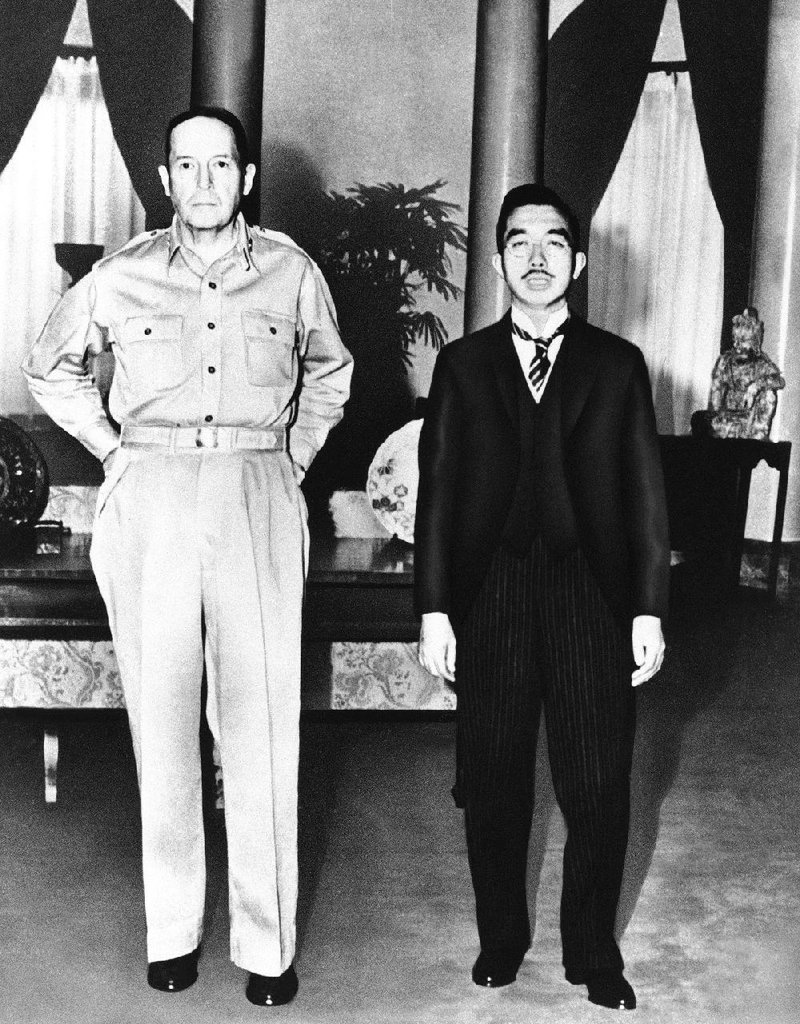Correction: Emperor Hirohito of Japan is described in an official 12,000-page history of his reign as exulting at Japan’s military successes in China during World War II. A New York Times article that appeared in Wednesday’s editions described incorrectly the document’s characterization of the emperor’s reaction to the victories.
MATSUE, Japan -- Before Japan's attack on Pearl Harbor, Emperor Hirohito criticized plans to go to war with the United States as "self-destructive," and opposed an alliance with Nazi Germany, though he did little to try to stop the war that Japan waged in his name, according to the long-awaited official history of his reign released Tuesday.
The official annals released by the Imperial Household Agency, a tradition dating back 14 centuries, provide a detailed timeline of Hirohito's life but don't appear to shed much new light on a 62-year reign that spanned Japan's invasion of much of Asia and its reconstruction and emergence as a global economic power in the postwar years.
The 61-volume record "hardly contained anything new that reverses conventional wisdom and history," the liberal-leaning Mainichi newspaper said in an editorial after the history was seen by Japanese media. "We must keep asking ourselves why that catastrophic war could not be avoided. ... The question is hardly resolved."
It took the Imperial Household Agency almost a quarter of a century to release its official 12,000-page history of Hirohito, who died in 1989 at age 87. It was presented to his son, current Emperor Akihito, in August. The 24-year project cost $1.9 million, not including personnel costs for a staff that averaged about 26 people.
The agency, which manages the affairs of the imperial family, including those of Akihito, explained the delay by saying it took time to put together the 61-volume history from 3,152 documents and records, some of them never previously made public.
However, the delay is widely seen as being related to the sensitivity of the subject matter in a nation that still has not fully come to terms with its actions during the war or the responsibility of Hirohito for it. Most histories portray Hirohito as a figurehead who was revered as a living god by Japan's soldiers and citizens, but who had little real power to decide the fate of his nation.
At the same time, he has been criticized for letting himself be used as a spiritual symbol for Japanese militarism, presiding over the meetings of political and military leaders at which decisions to go to war were made, and reviewing military parades atop his white horse.
While the agency's official history has been long awaited by scholars, it failed to contain some hoped-for material, such as records of several meetings between the emperor and Gen. Douglas MacArthur, the commander of the U.S. occupation forces after the war, who decided against putting Hirohito on trial as a war criminal.
Instead, it contained only information about the two leaders' first meeting on Sept. 27, 1945, that had already been made public in the past, according to the news agency Kyodo News.
The history also shows that Hirohito opposed going to war with the United States in the buildup to the Japanese navy's surprise attack on Pearl Harbor on Dec. 7, 1941, according to Kyodo.
"It is nothing less than a self-destructive war," Kyodo quoted the emperor as saying on July 31, 1941.
Two years earlier, on July 5, 1939, the emperor also criticized the army minister at the time for wanting to strengthen ties with Nazi Germany, according to Kyodo, which said the emperor supported greater cooperation with the United States. Japan eventually joined the Axis alliance with Germany and Benito Mussolini's Italy.
The history also says that years later, Hirohito was first notified of the U.S. atomic bombing of the city of Hiroshima nearly 12 hours after the blast on Aug. 6, 1945, according to Japanese media reports.
It says Hirohito judged on the evening of Aug. 8 that it had "become impossible to continue the war" and expressed hope that the war would be concluded "as swiftly as possible," according to the reports. The United States dropped another atomic bomb on the city of Nagasaki the next day, and Hirohito announced Japan's surrender Aug. 15.
The official history, which also shows him exalting at the victories of his armies in China, is only available for limited viewing by the public. The Imperial Household Agency plans to start publishing it in stages over the next five years, Kyodo said.
Information for this article was contributed by Martin Fackler of The New York Times and by Mari Yamaguchi and Ken Moritsugu of The Associated Press.
A Section on 09/10/2014
